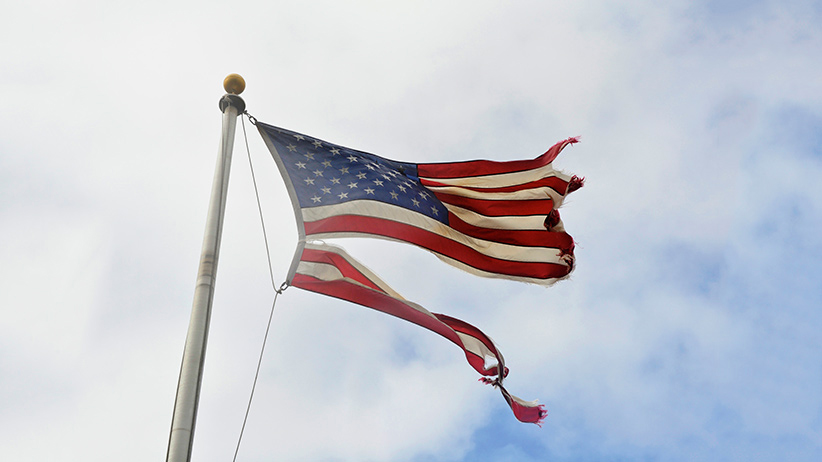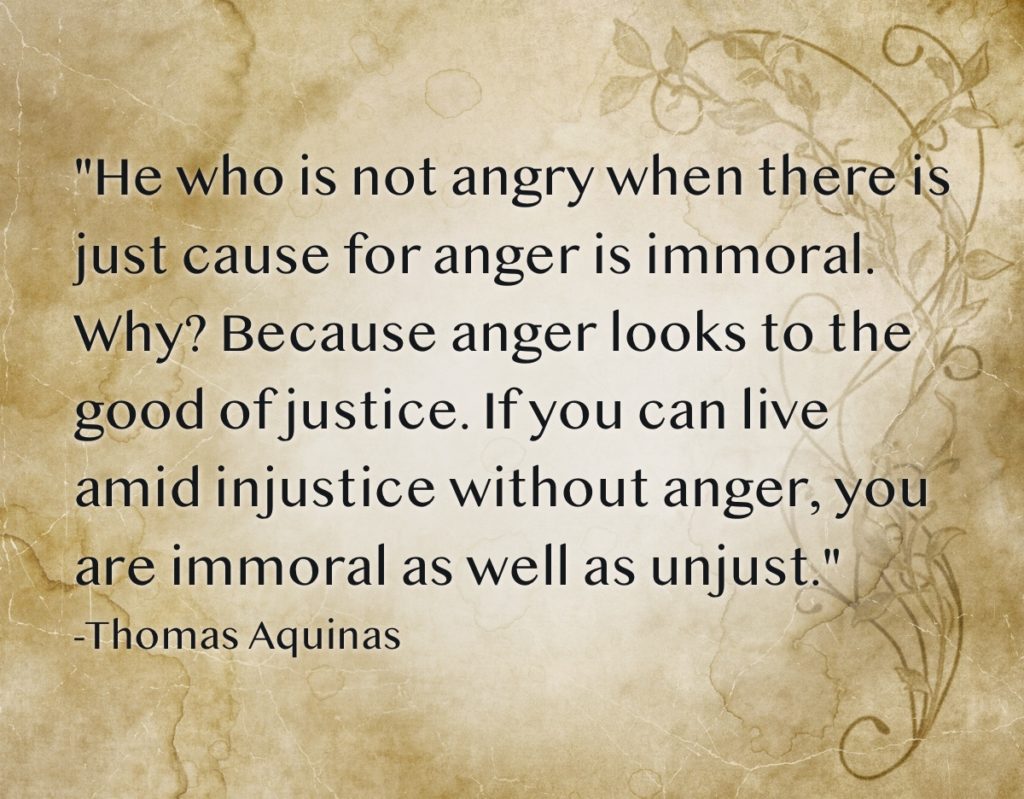Originally published in December 2018.
Adam Smith said that there is a lot of ruin in a nation. Yet despite the conservative mantra that the United States remains the greatest nation on earth, I believe its days are numbered. Not only that, but I think a close look at history shows that we have been in decline for some time. However, acknowledging this fact need not lead to despair. Great powers have been rising and falling for all human history. As we face the end of the American Republic, we are best served in preparing ourselves and our communities for the inevitable future rather than burying our heads in the sand and hoping it all works out.
Voltaire said that “History is only the pattern of silken slippers descending the stairs to the thunder of hobnailed boots climbing upward from below.” That is, civilizations in their youth are hard and ambitious, but are soft and decadent in their decline. In 500 BC, Rome was a city-state surrounded by larger kingdoms on the Italian peninsula. By the time of Christ, they ruled much of Europe, North Africa, and the Levant. Yet by A.D. 500 they ceased to exist in the west, and the city of Rome itself became little more than an ignored village. Seven centuries ago, the Ottomans were a tribe of nomads migrating west. In 1453 they toppled the remnants of the Eastern Roman Empire and captured Constantinople, the “Queen of Cities”. By the 20th century, however, the Ottoman Empire was in severe decline. Their defeat in World War I led to a revolution that ended the sultanate and created the modern nation of Turkey. Great Britain was a disunited collection of English, Saxon, and Gaelic kingdoms in A.D. 500. By 1850 they controlled a quarter of the world, but by 1950 their empire had disintegrated despite being on the winning side of World War II. History is the graveyard of empires.
Of the many empires that have risen and fallen throughout history, I believe Rome is the closest analogue to the modern United States. Rome’s fall was quite gradual, and hardly noticeable at the time. Many historians place the fall of the western Roman Empire in the year A.D. 476. However, if you talked to a Tuscan landowner in 475, and then again in 477, he would likely not have noticed much of a change. 476 is a convenient place to draw a line in history, because that was the year that the last official Roman Emperor, Romulus Augustulus, was deposed by the barbarian general Odoacer. The emperors of this era had long been puppets of barbarian generals, though. The only difference in 476 was that Odoacer did not set up another emperor in Romulus’ place, he merely did away with the office and continued ruling Italy as he had before. It is only many years later that one could look back and see that something had changed.
I believe that future historians will debate when the United States fell. What might it look like? Perhaps when the Constitution is abrogated, or the capital moved from Washington, DC. Perhaps it will be when a critical mass of states has seceded. The only thing that is clear now is that our once great country is in decline. I believe history will show that the United States peaked between 1941 and 1969, an era in time when our country won a world war, developed the atomic bomb, and landed a man on the moon. While there might be technological advances and military victories yet in our future, our energies are now being diffused into partisan fighting, identity politics, and enervating globalist endeavors.
Allow me to pause for a moment to define a difference between America the place, America the country, and America the people. America the place is a geographical location in the center of the North American continent. This place has been inhabited by many peoples throughout history, from the Native American Indians to the English, French, Spanish, and German settlers, and now to new groups of immigrants coming here en masse. America the country is a political entity, comprised of several states, created in 1788 at the adoption of the US Constitution, which evolved through various events such as the Civil War and the New Deal to become the thing it is today. On the other hand, the American people are the descendants of pioneers who tamed a wild land and built the greatest nation the world had ever seen. America the land might become home to different people. America the country might dissolve, as empires do. But America the people will survive, and that is what this blog is all about.
For most of its history the United States was wearing Voltaire’s hobnail boots. From winning an improbable victory against Great Britain in the Revolution, to expanding westward across an entire continent, America was hungry and ambitious. In 1898, the US defeated the old and tired Spanish Empire, taking by force its Pacific and Caribbean possessions. By 1945 the United States was left as the last nation standing over the ashes of a world ruined by war, its industrial output energized by mobilization and possessing the deadliest weapon ever conceived by mankind. It was at this point that we traded our work boots for silk slippers. The postwar period was the most prosperous time in history, and Americans enjoyed a higher standard of living than any previous generation could have dreamed. Rather than seeing this period for the historical outlier it was, however, that generation of Americans believed it was the new normal, and that the gravy train would keep rolling forever.
Alas it was not so. Despite the unprecedented period of prosperity following World War II, the US began to struggle militarily, socially, and economically. After defeating mighty Nazi Germany and Imperial Japan, the US fought tiny North Korea to a stalemate, wasted eight years in Vietnam only to withdraw and let Saigon fall, and began the 21st century by getting bogged down fighting insurgencies in Afghanistan and Iraq. These failures did not stem from a lack of technology or manpower, but from a lack of willpower. Meanwhile, American society fragmented into dozens of separate identity and interest groups, each clamoring for an ever-larger share of the public purse, while the economy became more and more dependent on commodity bubbles and endless debt.
The end of World War II also saw the United States begin to embrace a globalist position, as opposed to a strictly nationalist position as in the past. We founded the United Nations and NATO, dedicated to helping achieve world peace and protect the weak from the strong. We sent troops to Korea, Vietnam, and Kuwait not to protect America’s borders, but to defend the citizens of those regimes from would-be tyrants. A pre-WWII citizen would be horrified to learn that not only do we still have troops stations in Japan, Germany, and Italy 75 years after the end of the war, but we also have troops scattered around the world, in Syria, Yemen, Niger, Iraq, Afghanistan, and South Korea. The globalist position is self-contradictory: in doing our best to avoid looking like an imperial conqueror we end up mired in swamps of mediocrity for years on end. After the 9/11 terror attacks, support for invading Afghanistan and rooting out the Taliban and Al Qaeda was very strong among American citizens. Yet who would have supported that invasion had they known we would still be there more than seventeen years later?
While our soldiers are stuck in quagmires abroad, our government has become a quagmire of its own at home. The federal government was small and agile when the Constitution was adopted, but has today become a bloated swamp. Decades of legislation, mostly since the New Deal of the 1930s, have added countless departments and regulations. Whereas our constitutional government was once accountable to the people, now we have career bureaucrats operating outside of any oversight by the voters. Presidents and Congresses come and go, but the deep state bureaucracy remains. Leftist feminist professor Camille Paglia clearly sees the problem:
“I have been trying for decades to get my fellow Democrats to realize how unchecked bureaucracy, in government or academe, is inherently authoritarian and illiberal. A persistent characteristic of civilizations in decline throughout history has been their self-strangling by slow, swollen, and stupid bureaucracies.”
These, then, are the signs of the decline of the United States, and the last days of the Republic: We involve ourselves in foreign wars, and then are neither able to win nor to withdraw. Our economy coasts, built upon bubble after bubble. Our government has become bloated and corrupt, and entirely unaccountable to the voting public. We lack the will to enforce our own borders, with politicians on both sides having incentive to import millions of foreigners to replace American citizens. Our infrastructure is failing, and the costs for replacing it skyrocket while the jobs never get done. We outsource manufacturing to developing nations in exchange for cheap goods. Our politicians are so consumed with greed for power that they spend all their time attacking each other rather than doing anything for the sake of their country. A sizable percentage of our elite class sees themselves as globalist citizens of the world, whose loyalty is not to their community, state, or nation, but to some amorphous idea of humanity, which in practice usually means they are loyal only to their own bank accounts. For a sizable percentage of regular folks, what is on TV is more important than any larger questions of society. Men and women no longer marry, and children are not raised in stable nuclear families. Colleges no longer educate but indoctrinate. Snark has replaced gravitas in journalism and humor in entertainment.
Something that cannot go on forever won’t. President Trump promised to make America great again, but it will take more than a president to accomplish this. It will be painful and protracted, like a treatment for cancer. It will not come from the top down, but will come from individuals, families, and communities. The greatness of America was never in her government, her military, or even her constitution, but in her people. The decline of America has been slow thus far, but I believe there will come a time when things will happen quickly. Dissolution, secession, and perhaps even civil war are on the horizon. I say this not to depress you, but to give you hope, that by seeing the coming cataclysm we can survive it and thrive as we rebuild a great nation. What comes next will not be the same as what came before; a single nation comprised of fifty states with its capitol in Washington, DC. But the spirit of America can survive if its people survive.
At the end of the recent Marvel movie “Thor: Ragnorak”, the land of Asgard is annihilated. The people survive, though, and search for a new home. The characters recognize that the nation was not the land, but the people. I believe that is analogous to America in the 21st century. The United States of America, its flag, and its constitution might not survive, but the people will endure. The same strain of men who left old Europe for the New World, who carved a nation out of a savage wilderness, who built the greatest nation the world has yet seen, this strain will survive and grow again, building on the ashes of what was. Take heart, though we live in interesting times.










I wrote this in December 2018 as a thesis statement for the blog and podcast, and it remains linked at the top of the main page. A year and a half later, it still rings true. I have not seen anything since I wrote it to make me think I was mistaken about the trajectory of our Republic. Once you accept that the United States as we know it is doomed, you are free to prepare for the future.
The question is, “How many Americans are left?”
I agree with most of what you say. I believe the decline of America began when we took God out of public schools in the 1950s. It was also about that time that Khrushchev warned that they would bury us and undermine us. This year twenty plus communists ran for president.